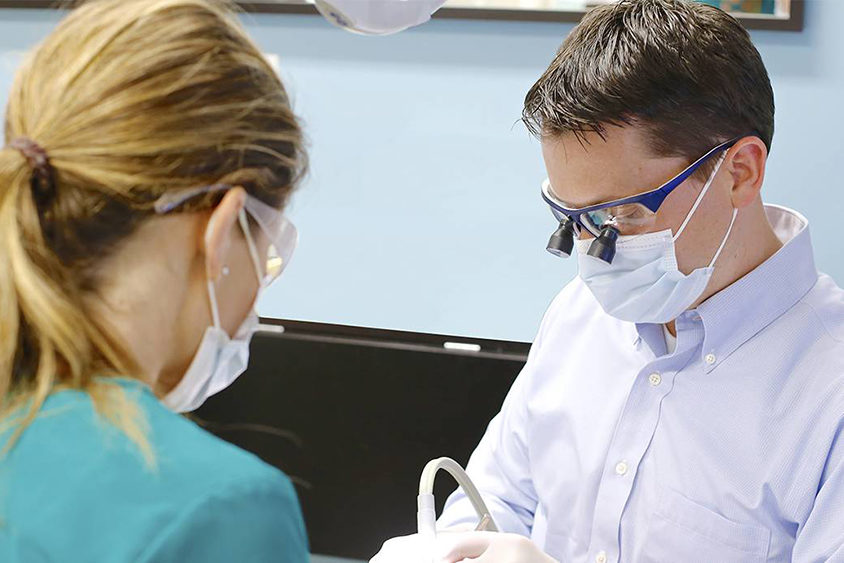Weekend Dental Emergency Tips
This weekend our office will be closing early on Friday and taking Monday off so we wanted to give you some information about how to handle the most common dental emergencies while we’re away.
How to Treat a Toothache
Swelling
Swelling likely indicates an active infection that will require antibiotics. Dr. Crump may be able to call you in an antibiotic to get you through the weekend until the office opens. When our office is closed the voice mail message gives you a phone number to contact the doctor.
Mild to Moderate Pain
Take an over the counter pain reliever such as Tylenol or Ibuprofen until you can make it to our office. Ibuprofen has anti-inflammatory as well as pain relieving effects, but can have serious interactions with other common medications and should only be taken after consulting your medical doctor.
Apply a cold pack to the outside of your cheek to help with pain or swelling.
Severe pain
There’s very limited options for pain medications you be prescribed unless you are seen by a doctor and get a physical written prescription. If you are in severe pain and Tylenol an Ibuprofen aren’t helping your best option is to go to an urgent care center or the emergency room.
Warning about home remedies for tooth pain
Do not rinse your mouth with toothache home remedies; for example hydrogen peroxide, diluted bleach, lemon juice, etc. in an effort to “kill the infection”. They can cause increased tooth sensitivity and/or cause chemical burns to your mouth.
What To Do If You Lose a Crown
If you have the crown:
- Go to the drugstore and buy a tube of over the counter temporary dental cement such as Recapit® or Dentemp®, denture adhesive, or use a small daub of toothpaste.
- BEFORE YOU USE THE TEMPORARY CEMENT! VERY IMPORTANT!
Look carefully at the crown and try to determine the correct way it is supposed to fit on your tooth. Before you put any cement on the crown test fit the crown on the tooth and gently bite down (don’t bite hard or you might damage the crown). Does it feel right when you bite down? When the crown is on your tooth correctly again it should feel right when you bite down. - Once you know how the crown correctly sits on your tooth, follow the directions on the temporary dental cement to cement the crown in place again. If it is an upper tooth or at the back of your mouth it may be helpful to have someone else help you.
- If it is after hours or over a holiday weekend when our office is closed you should call the office and leave a message requesting an appointment to have the crown permanently re-cemented as soon as possible.
If you do not have the crown:
Try to avoid chewing on the side you lost your crown. A tooth that has lost its crown is very fragile and at risk for breaking.
Avoid eating very cold or very hot foods – deep parts of your tooth are exposed and your tooth is likely to be very sensitive. You may use clove oil (found at most drug stores) or ambesol to give temporary pain relief.
Switch to a toothpaste for sensitive teeth such as Senodyne.
You need to be seen by our office, or another dentist, within the first three days of losing your crown because neighboring teeth will start to move and begin the fill in the gap where the crown was. We want to be sure that doesn’t happen so don’t delay coming in. Even if the office is closed call and leave a message so first thing when we reopen we can give you a call and get you an appointment.



